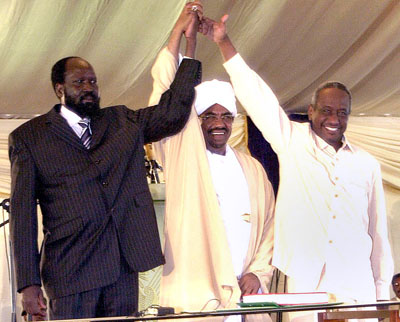
A series of deals in last month over elements of Sudan’s Comprehensive Peace Agreement, or CPA, largely went under the radar of international media attention, but offer important insights into the current dynamics of deal making that may trigger a return to North-South war. The Obama administration should heed the lessons from these deals and encourage coordinated international action, argues a new Enough report published today, titled “Deal Making in Sudan.”
“The motivations and means by which Khartoum and Juba negotiate the most contentious political issues in Sudan will ultimately determine whether the South’s self-determination referendum proceeds peacefully or plunges the country back into war,” wrote Maggie Fick, Enough’s South Sudan field researcher. “The strategy (or lack thereof) behind the international community’s involvement in these negotiations will also have an enduring impact on security throughout the Horn of Africa.”
Without a coordinated international effort aimed at ensuring the timeliness of negotiations, one or both of the parties could use a delay in discussions to their advantage next year. The fact that the positions of the international community toward Sudan remain poorly coordinated and designed at this late hour could well spell trouble ahead. Enough’s Executive Director John Norris pointed out:
“More and more of the negotiations between North and South appear to be taking place without effective international support or guidance. While that may produce some deals in the short-term, that approach is unlikely to resolve the big-ticket issues that could spark a return to war such as how to split oil revenues or how to divide contested border areas. Enormous amounts of work remain to be done.”

